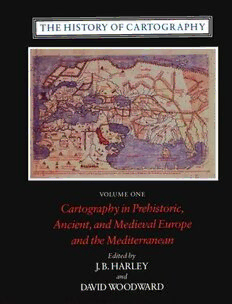
The History of Cartography, Volume 1: Cartography in Prehistoric, Ancient and Medieval Europe and the Mediterranean PDF
656 Pages·1987·57.643 MB·English
Most books are stored in the elastic cloud where traffic is expensive. For this reason, we have a limit on daily download.
Preview The History of Cartography, Volume 1: Cartography in Prehistoric, Ancient and Medieval Europe and the Mediterranean
Description:
By developing the broadest and most inclusive definition of the term "map" ever adopted in the history of cartography, this inaugural volume of the History of Cartography series has helped redefine the way maps are studied and understood by scholars in a number of disciplines.Volume One addresses the prehistorical and historical mapping traditions of premodern Europe and the Mediterranean world. A substantial introductory essay surveys the historiography and theoretical development of the history of cartography and situates the work of the multi-volume series within this scholarly tradition. Cartographic themes include an emphasis on the spatial-cognitive abilities of Europe's prehistoric peoples and their transmission of cartographic concepts through media such as rock art; the emphasis on mensuration, land surveys, and architectural plans in the cartography of Ancient Egypt and the Near East; the emergence of both theoretical and practical cartographic knowledge in the Greco-Roman world; and the parallel existence of diverse mapping traditions (mappaemundi, portolan charts, local and regional cartography) in the Medieval period.Throughout the volume, a commitment to include cosmographical and celestial maps underscores the inclusive definition of "map" and sets the tone for the breadth of scholarship found in later volumes of the series.
See more
The list of books you might like
Most books are stored in the elastic cloud where traffic is expensive. For this reason, we have a limit on daily download.
